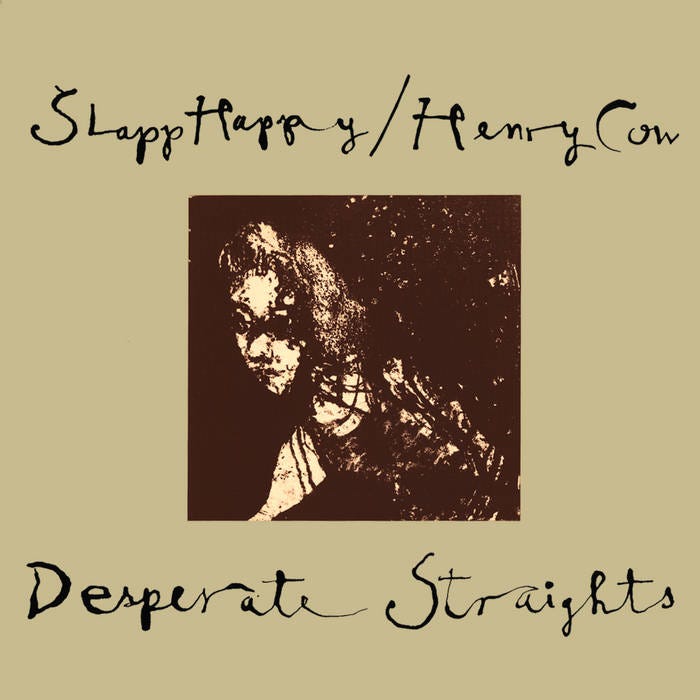Dave Mandl | June 19, 2025
The Desperate Straights Edition
On dissonant chords, arch lyrics, and category-defying albums.
Dave Mandl (DM) is a writer, bassist, and photographer, and hosts the weekly radio show "It's Complicated" on WFMU. He's on Bluesky as @dmandl.bsky.social and Instagram as @dmandl.
Dave here. In 1975, the cross-continental avant-pop trio Slapp Happy teamed up with the English avant-garde/leftist rock outfit Henry Cow to record the album Desperate Straights, its intentional misspelling a clever self-deprecating pun.
“Teamed up” is maybe misleading, as the line separating the two groups would blur and unblur over the next decade or so. In any event, the album as billed was a collaboration between the groups as they existed at the time. Slapp Happy featured the talents of the sardonically sharp-witted American songwriter Peter Blegvad and the decidedly un-rock-and-roll German vocalist Dagmar Krause. Henry Cow, generally considered part of the Canterbury music scene of the late sixties and early seventies that included Soft Machine and Caravan, were known for their uncompromising musicianship and politics, and boasted as members the cream of UK progressive rock, including guitarist Fred Frith, drummer Chris Cutler, and bassoonist Lindsay Cooper.
Why is this interesting?
The album is a singular, category-defying collection that straddles the unlikeliest mix of genres: the musical theater of Bertolt Brecht and Kurt Weill, ruminative chamber music, opera, perky music-hall tunes, Satie-esque proto-minimalism, and, yes, a couple of outright pop songs. Pulling all of this together are Blegvad’s ingeniously arch lyrics (from “Some Questions About Hats”: “Can one wear uncanny hats? Can one weather hats? Can one wear feather hats? Can hats favor fire? Can a hat aspire to higher things?” etc.) and Krause’s clipped, heavily accented vocals—she’s been compared, not unreasonably, to Austrian chanteuse Lotte Lenya (who, incidentally, was married to Weill).
Rhythmically and harmonically, the thirteen tracks are surely among the most sophisticated to ever grace a putative rock album. Dissonant chords pop up everywhere. There’s nary a 4/4 beat to be found (the constant time-signature changes in “Apes in Capes” and “Bad Alchemy,” to name two examples, make them virtual obstacle courses, but the songs are no less swinging for that). John Greaves’s free-flowing bass-playing owes far more to classical music than pop or even jazz. Many of the tracks are drummerless, and guitar parts are thin on the ground. Instead, the album is dominated by piano, brass, woodwinds, and Krause’s often lugubrious voice. (The light-hearted xylophone on “Europa,” playing in unison with Krause, is a nice playful touch.) When the guitar and drums do step up, we have songs like “Strayed,” a rocker featuring startling rolls on Cutler’s oddly tuned snare drum and a nearly blasphemous ersatz-surf solo by Frith—and a few left-field time changes for good measure.
All that to say, the record is a masterpiece. If you find it challenging on first listen, give it a few more tries. It’s more than worth your time.
While you’re at it, know that Desperate Straights is usually teamed up in a twofer with the Slapp Happy LP Casablanca Moon. This is like being served the most delicious meal you’ve ever eaten, then having the restaurant throw in a free ticket for another meal afterward. (DM)
